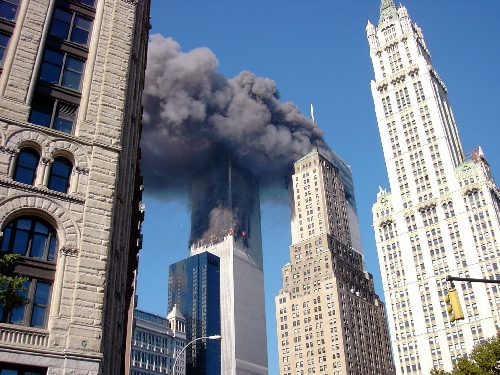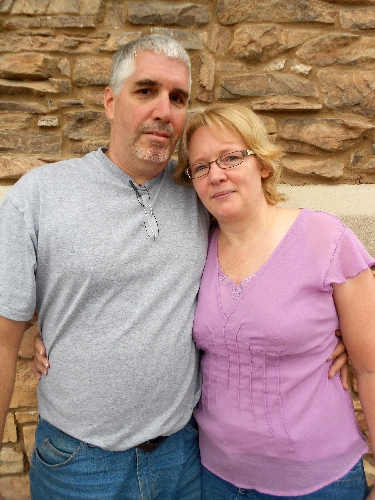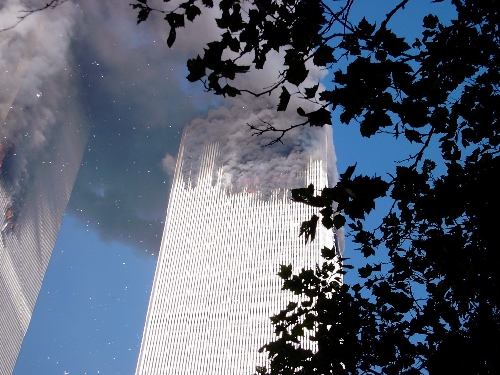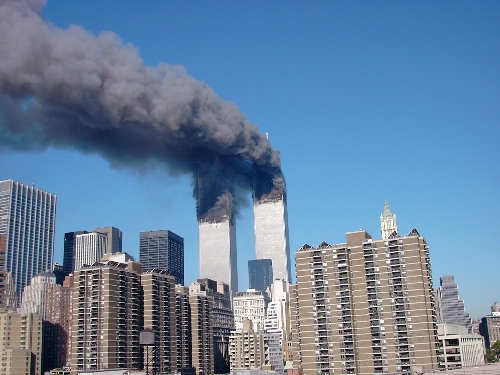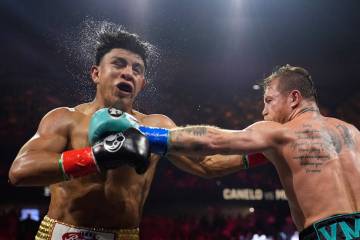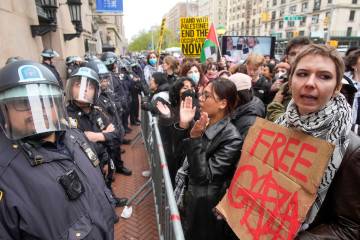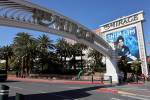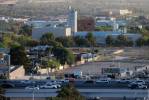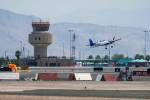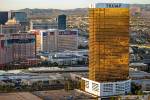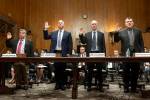Las Vegas resident and Sept. 11 survivor talks about his experience
Some would call it fate or an act of God. Or luck.
John Glock isn't exactly sure what to call it. What he does know: Against all odds, he is alive.
A series of events kept Glock from the upper floors of the World Trade Center where nearly 3,000 people died on Sept. 11, 2001. His friends and coworkers made up hundreds of the victims. Their memories serve as painful reminders of the day he wishes he could forget.
"This is the first time I've told my story from start to finish. I've told pieces, but it was too hard," Glock said . "It feels like it was 10 days ago, not 10 years ago."
In an effort to lessen the constant thoughts of the terrorist attack, Glock took a job at a southwest-area company and moved to Las Vegas in 2006. But not even the distance of a decade and dozens of states can keep Sept. 11 from being on his mind every day.
"It's always there," Glock, now 52, said. "It's always with me."
Glock's train was 40 minutes late that day, and he was irritated as he rushed from the underground stop. As he neared the entrance, dozens of police blocked the way. The officers weren't giving details, but they were firm about not letting him up to his 53rd-floor office in the second tower. Glock looked down a hallway to see a mass of people running with looks of "sheer terror " on their faces. He first thought a gunman was opening fire. Or maybe it was a bombing like the one he survived there in 1993. Perhaps a small plane had crashed on the roof and shaken the building. Then he realized the date. His father, also named John Glock, died on Sept. 11, 1989.
Whatever was causing the chaos didn't matter. Glock ran up the first stairwell he could find and out to the street.
"I am not going to die the same day my father died," he thought. "I am not going to die today."
Once outdoors, he was startled to see the commercial plane ablaze in the side of 1WTC. He called up to his office, telling his coworkers to get out of the building at all costs, worried that security might be telling people to stay inside, as officers had in 1993.
Papers and office chairs rained down, scattering the grounds where he stood.
Then a body fell.
"I still remember what he was wearing. He had orange hair," Glock said . "I was just stunned."
Another body fell. Then another.
"I couldn't take it anymore," he said. "I knew I had to get away."
Seconds later, a roar erupted as the second plane hit the south tower, sending a fiery piece of metal to the ground just 100 feet from Glock. The only thought he could process: "Run."
"I ran as fast as I could down the middle of the street. I didn't care that there were cars. I just ran," he said. "It was survival mode."
Once blocks away, his phone started working again, and he called his wife to tell her he was out of the building and that he'd find a way home when he could. They hung up. He sat on a concrete platform and watched tower 2 fall, then tower 1.
"It was just surreal. Those were 110- story buildings and then they're just gone," he said of where he had worked for more than a decade. "I watched them disappear."
Meanwhile, his wife Sharon McCoy-Glock fielded phone calls from family and friends wanting to know her husband's fate.
She worried about what their three children, ages 13, 14 and 16 at the time, were being told at school. Composed on the exterior, she fell apart on the inside. She didn't know how far from the buildings her husband was when they fell or if he was safe.
"There were hours where I didn't know where he was. Knowing he's OK now doesn't take away what I felt at the time," she said, as she dabbed a tissue behind her glasses, catching the tears before they wet her cheeks. "You feel like you should be happy he's OK, but you have guilt. So many people we know died. So many."
Glock walked for five hours, trying every train station for a ride home, only to find they were all closed. Hundreds of survivors walked the streets together in dust-covered clothes. Merchants passed out water and flip-flops to women in high heels.
"Hundreds of people were walking together in the middle of Manhattan, and it was eerily silent," he said. "For 20 years working in the city, I never remember silence."
As he crossed the bridge to Long Island, Glock kept track of which piece of land he was closest to so he would know which direction to swim if the bridge went down.
Once in Queens, he took the first available train in any direction, and his wife picked him up at the first stop to take him home. The attacks left McCoy-Glock with a constant sense of paranoia -- writing her children's names in their shoes so they could be identified, arming them with copies of her credit card so they could afford one of their several escape routes to meeting spots outside the city.
"As a mom, you always think about how to protect your kids. You never think something this big, though," she said. "You think about what to do if you get separated in the mall. Not bombs and terrorist attacks."
For years, Glock tracked planes through the sky, unable to break his line of vision until they flew far into the horizon.
Their children were equally concerned about their parents and requested that Glock stop working in Manhattan. What was left of his company transferred to its parent corporation in New Jersey, but he still had to travel through the city to get there. And they lived on Long Island, with virtually no way out except also through Manhattan. The couple finally moved, following two of their children who started attending the University of Nevada, Las Vegas.
"I don't know what to call it. I guess I feel like God was telling me it wasn't my time," Glock said. "In the game of life, I'm in the bonus round."
Six months before the attacks, Glock worked on the 94th floor of the first tower. He switched departments, opting for better benefits over better pay when the company divided. While everyone at his new office on the 53rd floor of 2WTC lived, not a single employee in the other department survived.
One friend was mid-call with human resources, trying to switch off the 94th floor when he saw the first plane coming at him.
"I would have been there," Glock said, shaking his head as he glanced at his wife and reached for her hand. "No one on that side of the company made it out. I lost so many friends. I'll never be the same."
Contact Southwest/Spring Valley View reporter Jessica Fryman at jfryman@viewnews.com or 380-4535.



